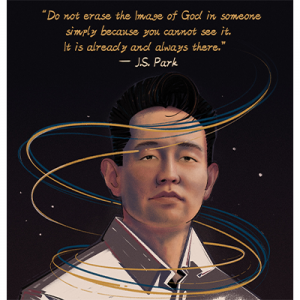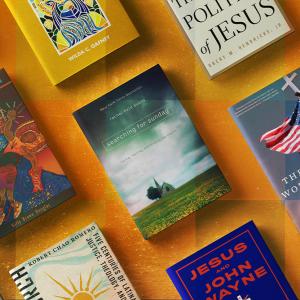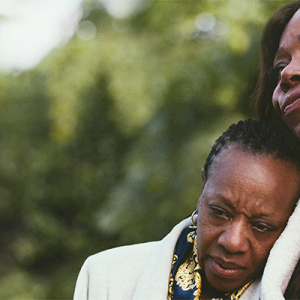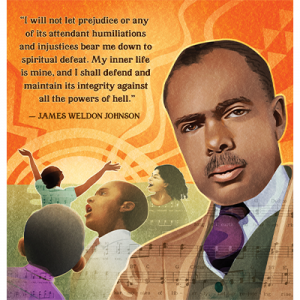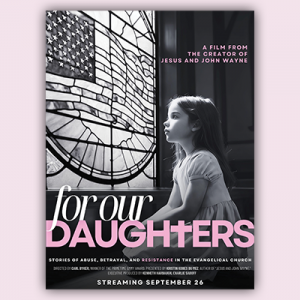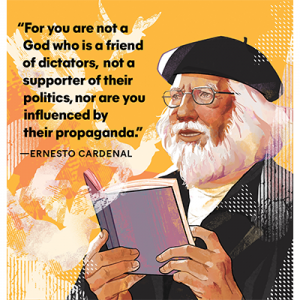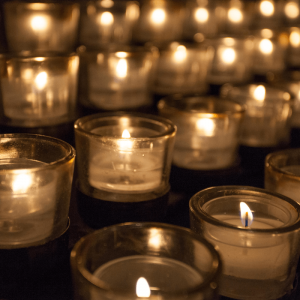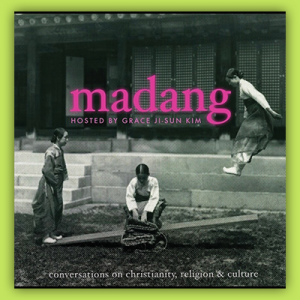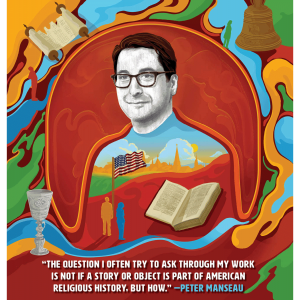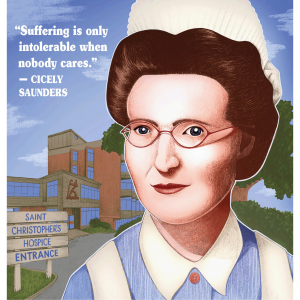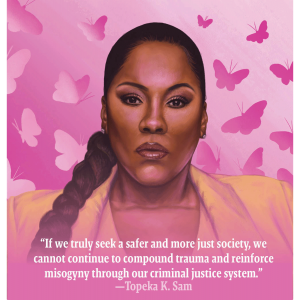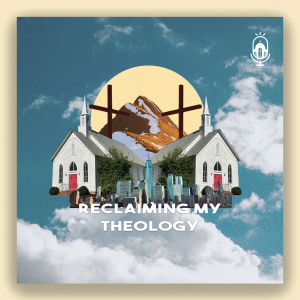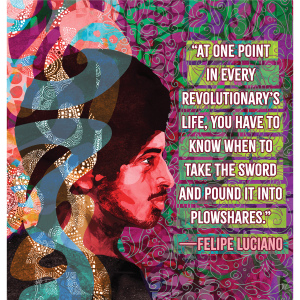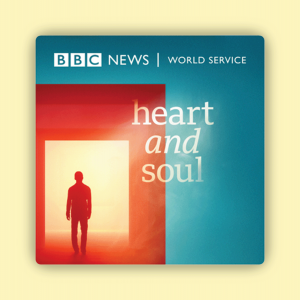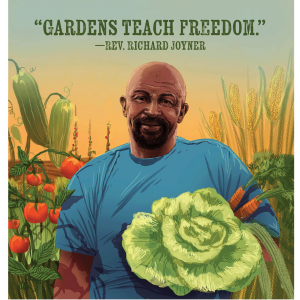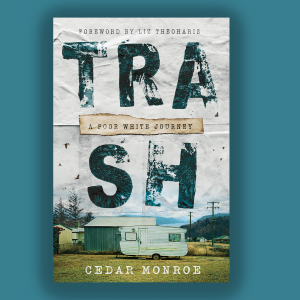Posts By This Author
The Editors: Singing Like Sparrows
An introduction to the March 2025 issue of Sojourners.
IN HER REFLECTION on the work of poet Gwendolyn Brooks, Sarah James sees Brooks’ poetry as asserting “our collective right to dream of a humane world.” At Sojourners, we ground our “dream of a humane world” in God’s dream for all creation to thrive — each sparrow, each planet, each one of us. And yet, our adversary attempts to occupy our souls like a “roaring lion” (1 Peter 5:8). It’s not just you who is overwhelmed, destabilized, scared. We mark five years of living with covid-19, as Céire Kealty reflects. President Trump is staging an all-out attack on immigrant families, as Ken Chitwood reports, while churches work to offer protection in the face of harsh deportation policies. When surrounded by the deafening “roaring lion,” it’s tempting to become small and defensive. But, as Edgar Rivera Colón writes in our cover feature, God invites us into life-giving soul work to sustain us in risky love and activism. Even when our hearts are shattered, God is ready to fuse them together. Just ask. Brooks wrote, “Life is for us, and is shining. / We have a right to sing.” Let’s be like the sparrows and sing.
The Best Faith and Justice Books of the Century (So Far)
Since our earliest issues, Sojourners has maintained that culture coverage is just as much a part of our mission to articulate the biblical call to social justice as news stories and commentaries. And after reviewing the list below, we suspect you’ll see why. The books on this list span many genres, but they all circle the same core question: What does our faith call us to do in the face of injustice?
New and Noteworthy: Unconditional Love, ‘Shame-Sex Attraction,’ and More
Three culture recommendations from our editors.
Love is Patient
In the film Hard Truths (written and directed by Mike Leigh), the main character yells at strangers — Pansy is angry at the world. But her sister Chantelle sees the sadness behind the rage, offering Pansy the unconditional love we all need: “I don’t understand you,” says Chantelle, “but I love you.” Bleecker Street Media
The Editors: True Confessions
An introduction to the January/February 2025 issue of Sojourners.
TRUE CONFESSIONS: WE hoped this issue of Sojourners might be commenting on the first woman U.S. president. It would have felt like progress to see Kamala Harris, a woman of Black and South Asian heritage, in conversation with other female heads of governments, such as those in Mexico, Peru, Italy, Thailand, and Tanzania. We also planned for election results that would take time to finalize. Then, just days before our deadline, Donald J. Trump won the election — and by Electoral College votes it wasn’t even close. We feel weary and defeated. Like many of you, we worked hard to protect voters’ rights to a free and fair election. We trust that’s what we got. But the results have also moved a well-funded authoritarian movement closer to its goals, as journalist Katherine Stewart explains in our interview with her. This anti-democratic movement has hijacked parts of our Christian faith. We say it here plainly: The principles, methods, and policies of white supremacy and authoritarianism are incompatible with the message of Christ. As senior editor Rose Marie Berger writes, “The new authoritarians amassing around Trump see themselves as Nietzsche’s ‘supermen’” — superior to all others and with an immoral drive to dominate, not democratize. We will undermine them with revolutionary love every step of the way.
New and Noteworthy: ‘Unholy Power,’ Black Utopia, and More
Three culture recommendations from our editors.
Unholy Power
Kristin Kobes Du Mez and Carl Byker’s short documentary, For Our Daughters, displays the evangelical church’s dangerous pattern of protecting abusive men — from the pulpit to the White House — to maintain social and political power, often to the detriment of women. www.forourdaughtersfilm.com
The Editors: Welcome. You Belong.
An introduction to the December 2024 issue of Sojourners.
POET MARY OLIVER describes the world calling us “like the wild geese, harsh and exciting.” As we approach Advent, Christians ponder words like annunciation, waiting, and hope. Midwife Julie Dotterweich Gunby plumbs the theological depths of expectation and asks if we are truly “ready for Christmas.” Before we celebrate Christ’s birth, we must wade through the consequences of a U.S. election. (This issue went to print before November.) If we zoom too far out, our vision becomes binary — red/blue, us/them, win/lose. If we look more closely, we see active civic engagement, and a robust obligation to protect the democratic process. We also glimpse ties that bind us around the world. Stephen Schneck chronicles Nicaragua’s fall into autocracy, a cautionary tale. Chris Hedges and Mae Elise Cannon take readers to Palestine and Jerusalem’s Armenian Quarter, respectively. Liuan Huska travels to Ann Arbor, Mich., to report on a “farm-to-altar” Communion bread project reminding us that we are what we eat. “Whoever you are, no matter how lonely,” concludes Oliver, the world is “announcing your place in the family of things.” Welcome. You belong.
Prayers Lifted: Here's Where You Can Pray for the 2024 Election
According to recent polling, 7 out of 10 Americans are feeling anxious about the 2024 presidential election. And as Election Day draws near, many churches and faith groups are trying to help alleviate some of that anxiety by opening their doors — and virtual spaces — for prayer.
New and Noteworthy: ‘Living Room Theology,’ the Forgotten Apostle, and More
Three culture recommendations from our editors.
Living Room Theology
Hosted by theologian Grace Ji-Sun Kim, the Madang podcast features erudite conversations with scholars, ministers, activists, and more. Named after the courtyards found in traditional Korean homes, the show provides an inviting, intimate space to envision a more just world. The Christian Century
The Editors: Celebrating Life & Courage
An introduction to the November 2024 issue of Sojourners.
CLIMATE ACTIVIST, GRANDFATHER, and professional cellist John Mark Rozendaal blocked the entrance to Citibank headquarters this summer to protest one of the globe’s biggest funders of fossil fuel expansion. Hugging a fire-engine red instrument, he played a few bars of Bach and was promptly arrested. “The purpose of music is to sober and quiet the mind,” he said to the crowd, “to make it susceptible to Divine influences.” His cello bears the inscription: “This machine loves, serves + protects life.”
Small courageous acts of joy are proliferating. In this issue, Rev. Moya Harris quotes rapper Chuck D to confront troublesome forces in this election season and Chris Crawford, a Catholic at Protect Democracy, urges Christians to become poll workers.
While we mourn the passing of civil rights activist, historian, and song leader Bernice Johnson Reagon, we are grateful for associate editor Josina Guess’ celebration of her life. Reagon’s singular voice demanded that we remember our freedom saints, of whom she is now one. Liz Cooledge Jenkins, reflecting on burnout and social activism, reminds us: “Joy, it turns out, is essential to the work of justice.”
New and Noteworthy: Conversations With Mystics, ‘Me & My Muslim Friends,’ and More
Three culture recommendations from our editors.
Our Muslim Neighbors
In an era defined by ideological silos, it’s as important as ever to understand our neighbors. The podcast Me & My Muslim Friends invites listeners to do just that, with host Yasmin Bendaas leading thoughtful conversations about the broad spectrum of American Muslim experiences. WUNC
The Editors: A Special Issue About a Deadly Heresy
How can we address Christian nationalism?
THIS SPECIAL ISSUE of Sojourners focuses on Christian nationalism — what it is, why it matters, and how we can address this rising force.
Sojourners’ president Adam Russell Taylor introduces the dangers of Christian nationalism and how some are responding. Amanda Tyler, executive director of Baptist Joint Committee for Religious Liberty and author of the forthcoming book How To End Christian Nationalism, further defines the threat to democracy and religious liberty, but also offers the assurance that “working to end Christian nationalism does not mean working to end Christian expression in the public square.” It’s about how we bring our faith to civic engagement.
New and Noteworthy: ‘Biblical Time Machine,’ Poetry From Kwame Dawes, and More
Three culture suggestions from our editors.
Scriptural Time Travel
For the average reader, understanding scripture’s historical context can be overwhelming. Hosted by scholar Helen Bond and journalist Dave Roos, the podcast Biblical Time Machine provides an accessible entry point into biblical scholarship. Episode topics include slavery among early Christians and first-century childhood. BibleOdyssey
Wrestling for Truth in Our Past
The stories we tell about our history shape our future.
In Derek Walcott’s poem “Midsummer, Tobago” he recalls a “summer-sleeping house / drowsing through August.” At Sojourners we are savoring family vacations, relaxing, welcoming new babies — and telling stories about our history and our becoming.
Sojourners assistant editor Josina Guess interviewed actor Aunjanue Ellis-Taylor about her recent films Origin and Exhibiting Forgiveness. Their deep conversation releases transformative power, an example of what narrative theologian James McClendon Jr. called “biography as theology.” What happens when we wrestle for truth in our personal and social histories, and open that struggle to God? As “Living the Word” writer Raj Nadella warns, “distorted memories of the past may misdirect our future; they may cause us to miss the way God is leading.”
New and Noteworthy: ‘Girls State,’ U.S. Food Policy, and More
Three culture recommendations from our editors.
When Girls Govern
The documentary Girls State follows a group of dedicated high school girls as they participate in an immersive mock-government program. At a time when civic norms are being eroded, the film is a fascinating, hopeful, and human portrait of American democracy’s future. Apple TV+
Defending the Dignity of All
Christians are continually instructed to make alliances across the cell blocks and over the prison walls.
JAILS ARE NOT nice places. There is little to dampen the sheer terror of being closed in, locked down, and utterly vulnerable. Now imagine getting booked into county jail while pregnant. Journalist Beatrice M. Spadacini writes this month on moms giving birth and raising children while incarcerated or entangled in the carceral system. These stories call to mind Junia, the only woman whom Apostle Paul identifies as “in prison with me” and who was “in Christ before I was” (Romans 16:7). Christians are continually instructed to make alliances across the cell blocks and over the prison walls. Dwayne David Paul’s commentary on convict labor elevates the usefulness of those alliances today for strengthening worker’s rights and defending the dignity of all.
New and Noteworthy: ‘Code Dependent,’ Reclaiming Theology and More
Three culture recommendations from our editors.
Finding Faith Again
With breadth and depth, the Reclaiming My Theology podcast seeks to “take our theology back from ideas and systems that oppress.” Host Brandi Miller interviews diverse thinkers who are building a freer faith and traversing heavy topics, such as purity culture, with candor and diligent hope. reclaimingmytheology.com
Proclaimers of God’s Divine Economy
Justice is built into the order of creation. We’re simply living into that reality.
Sojourners had a wonderful in-person retreat this spring in Washington, D.C. Our gathering of editorial colleagues from California, Washington, Georgia, New Jersey, and D.C. sparked creativity, deepened commitment and community, and increased our love and respect for one another and our readers. Unfortunately, we also shared COVID — so we delayed the printing of this issue by a week to allow for rest and healing. (Hopefully, you didn’t notice.)
New and Noteworthy: ‘Heart and Soul,’ Queering Contemplation, and More
Three culture recommendations from our editors.
Dispatches of Devotion
The BBC weekly podcast Heart and Soul dissects religion’s ubiquitous and misunderstood presence in public life. Imbued with a refreshing human sensitivity, weekly episodes cover a range of faith topics — from Russian Orthodoxy in Kenya to a Sikh music revival. BBC
Transcendent Visions and Deep Healing
How do we tell if a spiritual experience is real?
ENGLISH MYSTIC JULIAN of Norwich had a busy 24 hours on May 13, 1373, during which she experienced a series of vivid and visceral visions. At a time when the church preached that suffering was God’s punishment on sinful people, Julian interrogated the crucified Christ: “Lord, how can all be well when great harm has come, by sin, to your creatures?” Jesus replies to her, “I am able to make all things well and I shall make all things well.” In this issue, reviewer Ezra Craker and columnist Sarah James draw on Julian’s wisdom for our own time.
New and Noteworthy: ‘The Empty Promises of White Supremacy,’ Building Better Healthcare Systems, and More
Three culture recommendations from our editors.
Class Over Race
In Trash: A Poor White Journey, chaplain Cedar Monroe explores the complex dynamics of being poor and white in the U.S. Grounded in liberation theology, the author ultimately calls communities to embrace multiracial solidarity and reject “the empty promises of white supremacy.” Broadleaf
